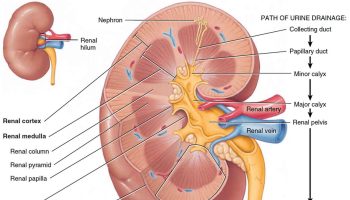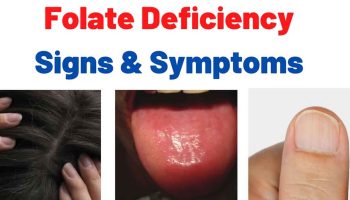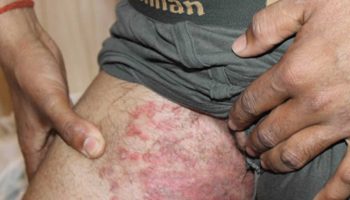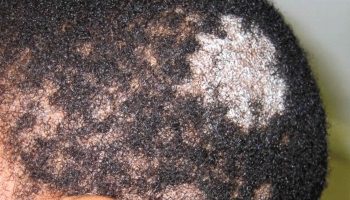Contents
Antisocial personality disorder, sometimes called ‘sociopath’ or ‘psychopath’, is a mental condition in which a person consistently shows no regard for right and wrong and ignores the rights and feelings of others. People with antisocial personality disorder tend to antagonize, manipulate or treat others harshly or with callous indifference. People with antisocial personality disorder are said to lack remorse or a conscience, and generally do not feel sorry for their actions.
Individuals with antisocial personality disorder often violate the law, becoming criminals – such as stealing and drug taking. They may lie, behave violently or impulsively, and have problems with drug and alcohol use. Because of these characteristics, people with this disorder typically can’t fulfill responsibilities related to family, work or school.
Antisocial personality disorder is defined by American Psychiatric Association’s Diagnostic and Statistical Manual on Mental Disorders, fourth edition (DSM-IV) as “…a pervasive pattern of disregard for, and violation of, the rights of others that begins in childhood or early adolescence and continues into adulthood” 1. In order to be diagnosed with antisocial personality disorder, a person must be at least 18 years of age and shown signs of a Conduct Disorder before the age of 15. A Conduct Disorder is a repetitive pattern of behavior that violates the rights, wishes, and feelings of others. The pattern continues to adulthood but on a larger scale. Rules and norms are disregarded, and the person may violate the law, or have drug and alcohol problems. It becomes difficult for them to fulfill responsibilities and commitments.
People with antisocial personality disorder may disregard social norms and laws, repeatedly lie, place others at risk for their own benefit, and demonstrate a profound lack of remorse. In the past, antisocial personality disorder was known as Sociopathy, Psychopathy or Dissocial Personality Disorder.
Prevalence of antisocial personality disorder
The prevalence of antisocial personality disorder in the general population varies depending on the methodology used, and the countries studied, but all show that the condition is much more prevalent among men. The lifetime prevalence in two North American studies was 4.5% among men and 0.8% among women 2 and 6.8% among men and 0.8% in women 3. Two European studies found a prevalence of 1.3% in men and 0% in women 4 and 1% in men and 0.2% in women 5. Despite these relative differences between North American and European studies, the rates of antisocial personality disorder reported indicate that even with the most conservative estimates antisocial personality disorder has the same prevalence in men as schizophrenia, which is the condition that receives the greatest attention from mental health professionals. While the incidence of antisocial personality disorder in women may be lower and the threshold for entry to services such as forensic services or the criminal justice system higher, there is some evidence to suggest that women with antisocial personality disorder 6 have greater severity of problems characterized by more complex comorbidities and corresponding poor outcomes 7.
Antisocial personality disorder is common in prison settings. Surveys of prisoners worldwide indicate a prevalence of antisocial personality disorder of 47% for men and 21% for women 8. In the UK prison population, the prevalence of people with antisocial personality disorder has been identified as 63% male remand prisoners, 49% male sentenced prisoners, and 31% female prisoners 9.
Complications, consequences and problems of antisocial personality disorder may include, for example:
- Spouse abuse or child abuse or neglect
- Alcohol or substance abuse
- Being in jail or prison
- Homicidal or suicidal behaviors
- Having other mental health disorders such as depression or anxiety
- Low social and economic status, and homelessness
- Gang participation
- Premature death, usually as a result of violence.
The exact causes for developing antisocial personality disorder are still unclear. Most professionals believe that causes are biological and genetic, as well as early social factors and interactions with family, friends and other children. It is a complex disorder that must be diagnosed by a mental health professional based on symptoms and past history.
Some people with antisocial personality disorder come from families where personality disorders are common. Some come from families where violence and crime are common. Others have had childhoods in which they suffered abuse, trauma, neglect and lack of discipline. Some, however, come from normal and happy families.
Other psychosocial factors in early childhood could also contribute to the development of this disorder. Some factors include but are not limited to a childhood diagnosis of Conduct Disorder, a family history of antisocial personality disorder, childhood abuse or neglect, an unstable, violent or disordered childhood, and poor social contact. antisocial personality disorder is more commonly diagnosed in men than women. It is likely that symptoms will decrease in intensity by the age of 40 or 50. But it’s not clear whether this decrease is a result of aging or an increased awareness of the consequences of antisocial behavior.
Certain factors seem to increase the risk of developing antisocial personality disorder, such as:
- Diagnosis of childhood conduct disorder
- Family history of antisocial personality disorder or other personality disorders or mental illness
- Being subjected to abuse or neglect during childhood
- Unstable, violent or chaotic family life during childhood
Men are at greater risk of having antisocial personality disorder than women are.
There’s no sure way to prevent antisocial personality disorder from developing in those at risk. Because antisocial behavior is thought to have its roots in childhood, parents, teachers and pediatricians may be able to spot early warning signs. It may help to try to identify those most at risk, such as children who show signs of conduct disorder, and then offer early intervention.
Early, effective and appropriate discipline, lessons in behavior modification, social and problem-solving skills, parent training, family therapy, and psychotherapy may help reduce the chance that at-risk children go on to become adults with antisocial personality disorder.
Some people with antisocial personality disorder are highly successful, intelligent, charming but exploit others for their own personal gain. Others are unable to maintain a job or stable home and end up in prison or in drug or alcohol facilities. They are generally unable to sustain meaningful relationships with others.
There are several warning signs and symptoms that may indicate a person has Antisocial Personality Disorder. A majority of these symptoms would lead to a diagnosis of antisocial personality disorder.
Deceitfulness
People with antisocial personality disorder are often experienced by others as deceitful, constantly lying, manipulating, or conning others in order to gain personal satisfaction or pleasure. These behaviors could be accompanied by extreme but superficial charm. They show a lack of empathy, and a lack of guilt or remorse for their behaviors.
Non Conformity
The person may show no respect for the law and have no boundaries. They may repeatedly perform acts that lead to arrest or cause harm to others.
Impulsivity
People with antisocial personality disorder might act impuslively and in the spur of the moment without any consideration of how their actions would impact themselves or others. The lack of planning ahead might lead to sudden changes in jobs, personal relationships etc.
Aggression
Someone diagnosed with this disorder often behaves in an irritable and aggressive manner. They might be physically abusive towards family members, such as a wife and/or children. They may also display disregard for their own safety, as well as that of others. They can often engage in reckless driving or in sexual behaviors or substance abuse with high risk of harm to self or others.
Irresponsibility
Consistent and extreme irresponsibility could also be present in people presenting with antisocial personality disorder. This might include failing to care for a child by either not paying child support; not providing adequate standards of hygiene; or not ensuring that the child is in the care of another adult if the primary carer is not able to be present. Relationships may suffer and there is an inability to maintain work or financial commitments.
People with antisocial personality disorder signs and symptoms may include:
- Fail to respect the law and repeatedly behave illegally
- Recurring problems with the law, including criminal behavior
- Disregard for right and wrong
- Persistent lying or deceit to exploit others
- Repeatedly violating the rights of others through intimidation and dishonesty
- Being callous, cynical and disrespectful of others
- Using charm or wit to manipulate others for personal gain or personal pleasure
- Impulsiveness and failure to plan ahead
- Have a lot of fights and be aggressive
- Disregard their own or others’ safety
- Be irresponsible
- Lack remorse and not worry who they have hurt, mistreated or stolen from
- Arrogance, a sense of superiority and being extremely opinionated
- Hostility, significant irritability, agitation, aggression or violence
- Lack of empathy for others and lack of remorse about harming others
- Unnecessary risk-taking or dangerous behavior with no regard for the safety of self or others
- Poor or abusive relationships
- Failure to consider the negative consequences of behavior or learn from them
- Being consistently irresponsible and repeatedly failing to fulfill work or financial obligations.
Adults with antisocial personality disorder typically show symptoms of conduct disorder before the age of 15. Signs and symptoms of conduct disorder include serious, persistent behavior problems, such as:
- Aggression toward people and animals
- Destruction of property
- Deceitfulness
- Theft
- Serious violation of rules
Some people may show these behaviors occasionally and learn to overcome them, without having a personality disorder. A personality disorder is a long-term pattern of behavior, thinking and emotions that causes distress to the person and those around them, and makes it difficult to function in everyday life. People with personality disorders find it hard to change their behavior or adapt to different situations. They have extreme thoughts and behaviors that make them act in ways they can’t control and make it hard to cope with day-to-day life.
People with antisocial personality disorder often have other mental illnesses as well, including anxiety and depression. They may also misuse alcohol and drugs.
A diagnosis of antisocial personality disorder can only be made in an adult, not a child, and should be made only by a psychiatrist or clinical psychologist who gets to know the person over a period of time.
- To be diagnosed with antisocial personality disorder, a person must have a history of conduct disorder before the age of 15.
- A diagnosis can only be made if the person is aged 18 years or older and at least three of the following criteria apply:
- repeatedly breaking the law
- repeatedly being deceitful
- being impulsive or incapable of planning ahead
- being irritable and aggressive
- having a reckless disregard for their safety or the safety of others
- being consistently irresponsible
- lack of remorse
- These signs must not be part of a schizophrenic or manic episode – they must be part of the person’s everyday personality.
- This behavior usually becomes most extreme and challenging during the late teens and early 20s. It may improve by the time the person reaches their 40s.
People with antisocial personality disorder are unlikely to believe they need help. However, they may seek help from their health care provider because of other symptoms such as depression, anxiety or angry outbursts or for treatment of substance abuse – problems with drugs and alcohol.
People with antisocial personality disorder may not provide an accurate account of signs and symptoms. A key factor in diagnosis is how the affected person relates to others. With permission, family and friends may be able to provide helpful information.
After a medical evaluation to help rule out other medical conditions, the health care provider may make a referral to a mental health professional for further evaluation.
Adults with antisocial personality disorder usually show signs of conduct disorder before they are 15. These include:
- aggression toward people and animals
- destroying property
- being deceitful
- stealing
- serious rule-breaking.
Although antisocial personality disorder is considered lifelong, in some people, certain symptoms — particularly destructive and criminal behavior — may decrease over time. But it’s not clear whether this decrease is a result of aging or an increased awareness of the consequences of antisocial behavior.
Diagnosis of antisocial personality disorder is typically based on:
- A psychological evaluation that explores thoughts, feelings, relationships, behavior patterns and family history
- Personal and medical history
- Symptoms listed in the Diagnostic and Statistical Manual of Mental Disorders (DSM-5), published by the American Psychiatric Association
Though typically antisocial personality disorder isn’t diagnosed before age 18, some signs and symptoms may occur in childhood or the early teen years. Usually there is evidence of conduct disorder symptoms before age 15.
Identifying antisocial personality disorder early may help improve long-term outcomes.
It is difficult to treat this disorder because people with antisocial personality disorder rarely seek treatment, as they do not think that there is anything wrong with the way they behave. When treatment is given, it is usually when individuals have entered the Corrective Services System and are forced to participate in treatment.
The main form of treatment for antisocial personality disorder is long-term psychological therapy; however, there is very little research to determine how effective the treatments really are. There are no drugs specifically for antisocial personality disorder, although people are sometimes prescribed medication to control other problems they may have, such as anxiety, depression or aggression.
Psychotherapy
Talk therapy could be helpful for people with antisocial personality disorder. It may include anger and violence management, substance abuse treatment and treatment for other mental health conditions.
Group therapy might be more useful than individual therapy, especially if the group facilitator is a peer, and not seen as an authority figure which is the way professional therapists are perceived to be.
Talking therapies
Cognitive behavioral therapy (CBT) is sometimes used to treat antisocial personality disorder. It’s a talking therapy that aims to help a person manage their problems by changing the way they think and behave.
Mentalization-based therapy (MBT) is another type of talking therapy that’s becoming more popular in the treatment of antisocial personality disorder. The therapist will encourage the person to consider the way they think and how their mental state affects their behavior.
Democratic therapeutic communities
Evidence suggests community-based programmes can be an effective long-term treatment method for people with antisocial personality disorder, and is becoming increasingly popular in prisons.
Democratic therapeutic community is a type of social therapy that aims to address the person’s risk of offending, as well as their emotional and psychological needs. It’s based around large and small therapy groups and focuses on community issues, creating an environment where both staff and prisoners contribute to the decisions of the community. There may also be opportunities for educational and vocational work.
The recommended length of treatment is 18 months as there needs to be enough time for a person to make changes and put new skills into practice. Self-motivation is another important factor for acceptance on to this type of scheme. For example, the person must be willing to work as part of a community, participate in groups and be subject to the democratic process.
Medication
No medication is known to be helpful in the treatment of this disorder. However, some medication might be useful in order to manage some of the symptoms. The types of medication prescribed could include antidepressants, antipsychotics or mood stabilizers.
Carbamazepine and lithium may help control symptoms such as aggression and impulsive behaviour, and a class of antidepressant called selective serotonin reuptake inhibitors (SSRIs) may improve anger and general personality disorder symptoms.
Medication must be prescribed with caution because of the potentiality of people living with this disorder to misuse drugs.
Coping and support
Skills for family members
People with antisocial personality disorder often act out and make other people miserable — with no feeling of remorse. If you have a loved one with antisocial personality disorder, it’s critical that you also get help for yourself.
A mental health professional can teach you skills to learn how to set boundaries and help protect yourself from the aggression, violence and anger common to antisocial personality disorder. They can also recommend strategies for coping.
Seek a mental health professional who has training and experience in managing antisocial personality disorder. Ask your loved one’s treatment team for a referral. They may also be able to recommend support groups for families and friends affected by antisocial personality disorder.
- Lenzenweger MF, Lane MC, Loranger AW, Kessler RC (2007). DSM-IV personality disorders in the National Comorbidity Survey Replication. Biological Psychiatry, 62(6), 553-564.[↩]
- Robins LN, Tipp J, Przybeck T. Antisocial personality, Psychiatric Disorders in America. Robins LN, Regier DA, editors. New York: Free Press; 1991. pp. 258–290.[↩]
- Swanson MC, Bland RC, Newman SC. Epidemiology of psychiatric disorders in Edmonton. Antisocial personality disorders. Acta Psychiatrica Scandinavica, Supplementum. 1994;376:63–70.[↩]
- Torgensen S, Kringlen E, Cramer V. The prevalence of personality disorders in a community sample. Archives of General Psychiatry. 2001;58:590–596.[↩]
- Coid J, Yang M, Tyrer P, et al. Prevalence and correlates of personality disorder in Great Britain. The British Journal of Psychiatry. 2006;188:423–431. http://bjp.rcpsych.org/content/188/5/423.long[↩]
- Yang M, Coid J. Gender differences in psychiatric morbidity and violent behaviour among a household population in Great Britain. Social Psychiatry and Psychiatric Epidemiolology. 2007;42:599–605.[↩]
- Galen LW, Brower KJ, Gillespie BW, et al. Sociopathy, gender, and treatment outcome among outpatient substance abusers. Drug and Alcohol Dependence. 2000;61:23–33. https://www.ncbi.nlm.nih.gov/pubmed/11064181[↩]
- Fazel S, Danesh J. Serious mental disorder in 23,000 prisoners: a systematic review of 62 surveys. Lancet. 2002;359:545–550. https://www.ncbi.nlm.nih.gov/pubmed/11867106[↩]
- Singleton N, Melzer H, Gatward R, et al. Psychiatric Morbidity Among Prisoners in England and Wales. London: The Stationary Office; 1998.[↩]





